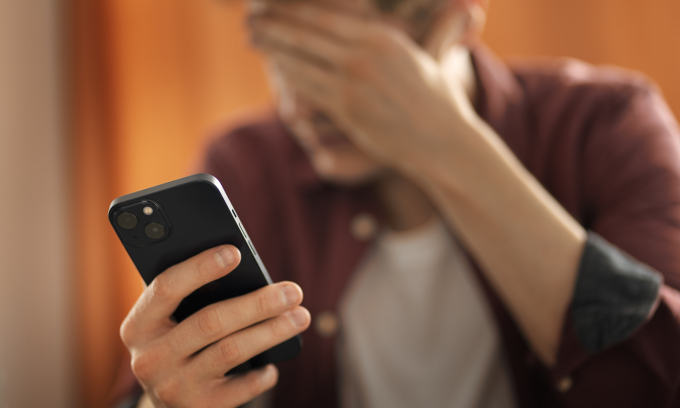“They’ve good our bodies and muscle tissue since they work out on the health club,” stated Tuan, a 20-year-old college scholar in Ho Chi Minh Metropolis. “In addition they have their very own distinctive dressing type.”
Over time, Tuan started to detest his reflection within the mirror and felt inferior for not resembling these fashions. Regardless of attempting to rework his look by hitting the health club, he noticed no important enhancements even after an extended interval. Tuan finally shifted his focus to altering his trend type to emulate the influencers he adopted.
“I spent lots of time going to completely different outfitters, even these removed from my dwelling, to search out garments just like what these fashions put on,” he defined. “I thought of what to put on each day each time I went out, which I discovered tiring.”
This pursuit led to each psychological and bodily discomfort, as Tuan’s physique, which naturally overheats, required extra comfy clothes than what the influencers wore.
“I always put stress on myself,” he mirrored.
 |
|
A person holding a cellphone Illustration picture by Freepik |
In response to Datareportal, 78.1% of the Vietnamese inhabitants repeatedly makes use of social media. The Digital 2023: World Overview Report, cited by Yahoo Finance, notes {that a} Vietnamese web consumer spends 2 hours and 32 minutes each day on social media on common.
Specialists level out that within the digital age, social media customers are bombarded with tons of, if not hundreds, of pictures on social media each day, typically with out realizing that these images are selectively chosen or edited to forged the most effective gentle on their homeowners. Such idealized, but unrealistic, on-line pictures can result in dissatisfaction with one’s look.
A 2019 British survey by the Psychological Well being Basis confirmed that 40% of British individuals aged between 17 and 24 felt their physique picture was negatively impacted by social media pictures. 35% reported that they’d stopped consuming sooner or later or restricted their diets attributable to physique picture issues.
Whereas there isn’t a particular survey for the Vietnamese, comparable traits are noticed, with Tuan representing a broader sample.
Tran Vinh, a 19-year-old college scholar in Ho Chi Minh Metropolis, additionally faces physique picture points. He typically spends nights scrolling by way of Fb and TikTok, turning into more and more dissatisfied along with his personal physique after seeing slender figures on-line.
“I’m thought-about chubby, and searching on social media and seeing individuals with stunning or skinny figures made me begin physique shaming myself,” Vinh admitted.
His insecurities intensified, main him to skip meals and even induce vomiting after consuming.
“That was how obsessed I used to be with my look, I felt like I mustn’t eat in any respect as a way to drop some pounds,” he stated. “Not permitting myself to achieve even a kilogram, I made myself throw up after consuming.”
Equally, Thu Mo, a 23-year-old Hanoian, struggled with how she was perceived on social media.
“Folks saved saying that I used to be too skinny, and I began feeling self-conscious, inferior, and pondering quite a bit,” Mo shared.
Her self-consciousness led her to make use of weight achieve dietary supplements.
Psychologist Tran Kim Thanh sees Tuan, Vinh, and Mo as experiencing physique dysmorphic dysfunction (BDD), which impacts 1.7% to 2.4% of the worldwide inhabitants.
“Social media habit shouldn’t be a direct explanation for physique picture obsession, however it will increase elements that considerably elevate the chance of triggering these obsessions,” Thanh explains.
Social media overusage typically results in one’s adverse attitudes concerning their appearances, based on Thanh.
“They [social media users] at all times examine themselves to these pictures,” she stated. “Seeing these stunning slim individuals makes them really feel worse about themselves, rising the stress and distorting their self-perception.”
The most important problem for treating these individuals is that they barely share about their inferiority, due to their feeling of inferior itself.
Thanh thus suggests that individuals like Mo, Tuan, and Vinh management their social media use and search assist from trusted household or neighborhood members that they respect, like pastors or monks, as a short-term answer.
“Nevertheless, for long-term results, consulting with psychological or psychological well being specialists is advisable,” she added.
In any other case, these individuals can find yourself like Mo, who suffered from opposed well being results attributable to her look obsession.
“My abdomen began to harm and cramp after about 10 days of taking weight achieve dietary supplements,” she recalled. “There was this at some point after I felt so uncomfortable that I fainted at work, and I used to be then taken to the hospital.”
“The docs stated my kidneys had been affected due to them [the supplements].”



